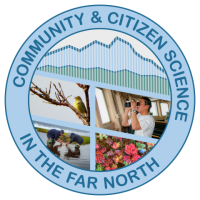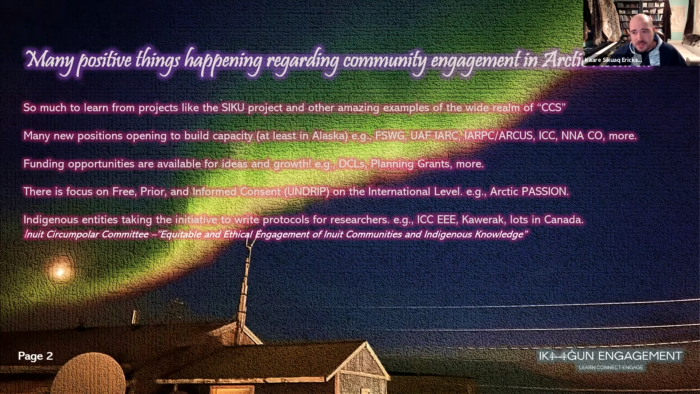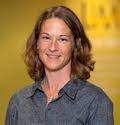By: Audrey Taylor, University of Alaska Anchorage and ARCUS Board Member

ARCUS hosted the first ever conference on the topic of community and citizen science in the Arctic and Far North on 5—7 October 2021. The Community and Citizen Science in the Far North (CCSFarNorth) conference was held entirely virtually, and was focused on discussing the myriad aspects of conducting community and citizen science research in the circumpolar north. The conference was conceived in response to the need to recognize, connect, and support a growing community of researchers, communities, and visitors that are interested in engaging in community and citizen science in some way. Although many resources regarding community and citizen science exist, they are not specific to the Arctic or Far North, hence the primary goal of the conference was to provide an opportunity to share knowledge and increase networking among researchers, community members, and other practitioners of community and citizen science in the circumpolar north.
Conference participants hailed from all corners of the circumpolar north, with over 19 countries represented and more than 280 registered participants. More than 40 inspiring presentations were given by a diverse mix of researchers, practitioners, community members, and Arctic adventurers across the three days of the conference. Each day opened with a land acknowledgement followed by a keynote presentation, a series of 15-minute talks, three-minute "lightning" talks, panel discussions, and a number of pre-recorded presentations hosted on YouTube. Presentations focused on a variety of subjects, from research and monitoring projects engaging Indigenous observers, to Arctic expedition reports, discussions of data management techniques and different platforms for collecting citizen science data, and reflections on how to improve relationships between researchers and the Arctic communities they hope to engage.

For further information about the SIKU network, see their website.
Presentations were organized into four specific sessions: "Unique to the Far North," "Just Sharing," "All About the Data," and "Lessons Learned;" sessions were intentionally kept broad to encourage interdisciplinary participation and facilitate the sharing of experiences across projects and topics. Although the subject matter of the talks varied widely, almost all presenters emphasized increasing awareness of the need to be respectful of the time and constraints of people living and working in the Arctic, and the growing desire of communities to be equal partners in the development and implementation of community and citizen science projects in their region. The conference was made light-hearted by the inclusion of themed music during session breaks, door prizes, and many enthusiastic moderators and speakers. The positive energy around the overall topic was palpable, and post-presentation question and answer sessions spurred interesting and engaging discussions.

For further information about the Ikaagun Engagement, see their website.
Feedback from the post-conference survey indicated that conference organizers were successful with the goals of sharing and networking. As one participant said, "It was fascinating to learn about so many projects occurring circumpolarly, which are co-creations with local people incorporating their knowledge and having relevance!"
Currently, conference organizers are planning a follow-up webinar on 30 November 2021 for anyone interested in continuing the discussions and networking activities that were begun at the conference. The webinar is open to anyone with interest (not just conference attendees), and details can be found on the event webpage. A post-conference summary report is also planned, which will contribute to the shared knowledge base, long-term goals, and available resources of the growing community of practice related to community and citizen science in the Arctic and Far North.
The conference could be found on social media using #CCSFarNorth at @ArcticResearch on Twitter and Facebook, and more information plus links to the conference agenda and archived presentations can be found on the conference webpage.
About the Author
 Audrey Taylor is an Associate Professor in the Department of Geography and Environmental Studies, University of Alaska Anchorage. Audrey earned her PhD in Wildlife Biology from University of Alaska Fairbanks and has conducted field-based research across the US, Central and South America, and China. Her current research focuses on Arctic-breeding shorebird populations with particular focus on the impacts of climate change and industrial development along Alaska's coastlines.
Audrey Taylor is an Associate Professor in the Department of Geography and Environmental Studies, University of Alaska Anchorage. Audrey earned her PhD in Wildlife Biology from University of Alaska Fairbanks and has conducted field-based research across the US, Central and South America, and China. Her current research focuses on Arctic-breeding shorebird populations with particular focus on the impacts of climate change and industrial development along Alaska's coastlines.
